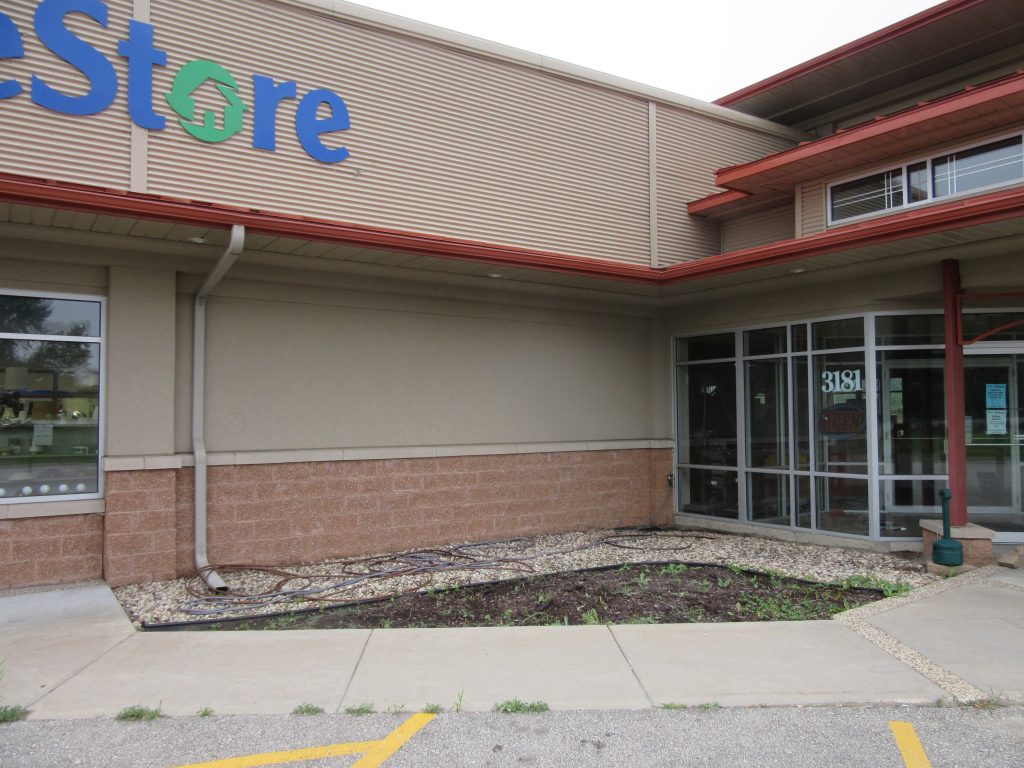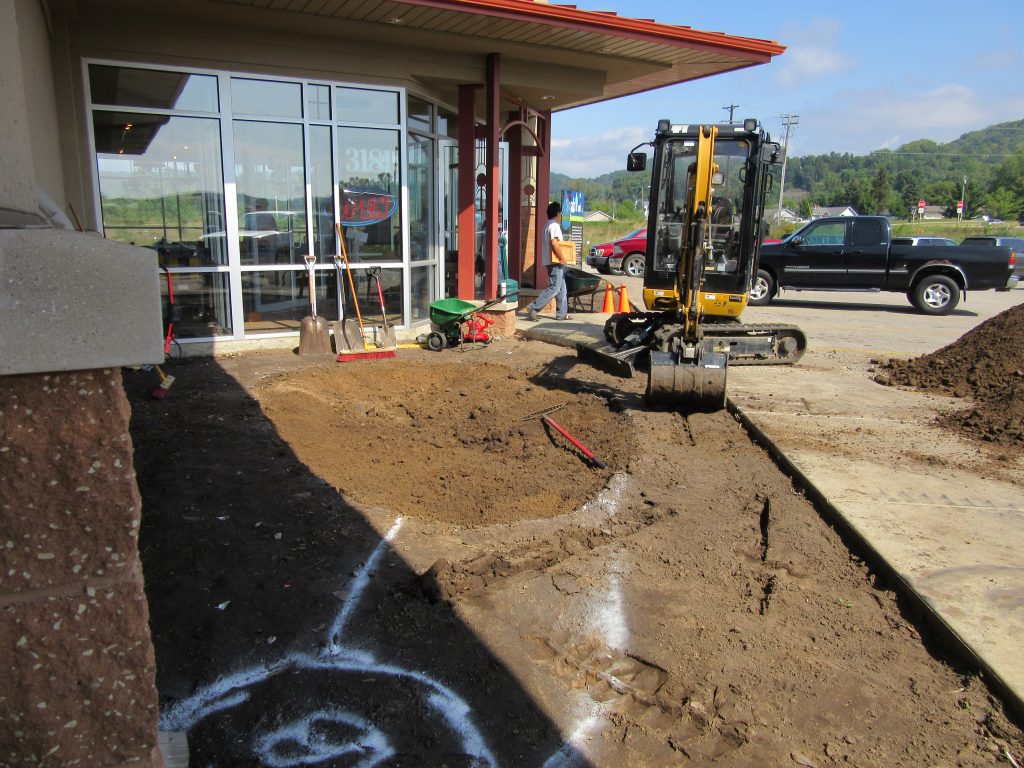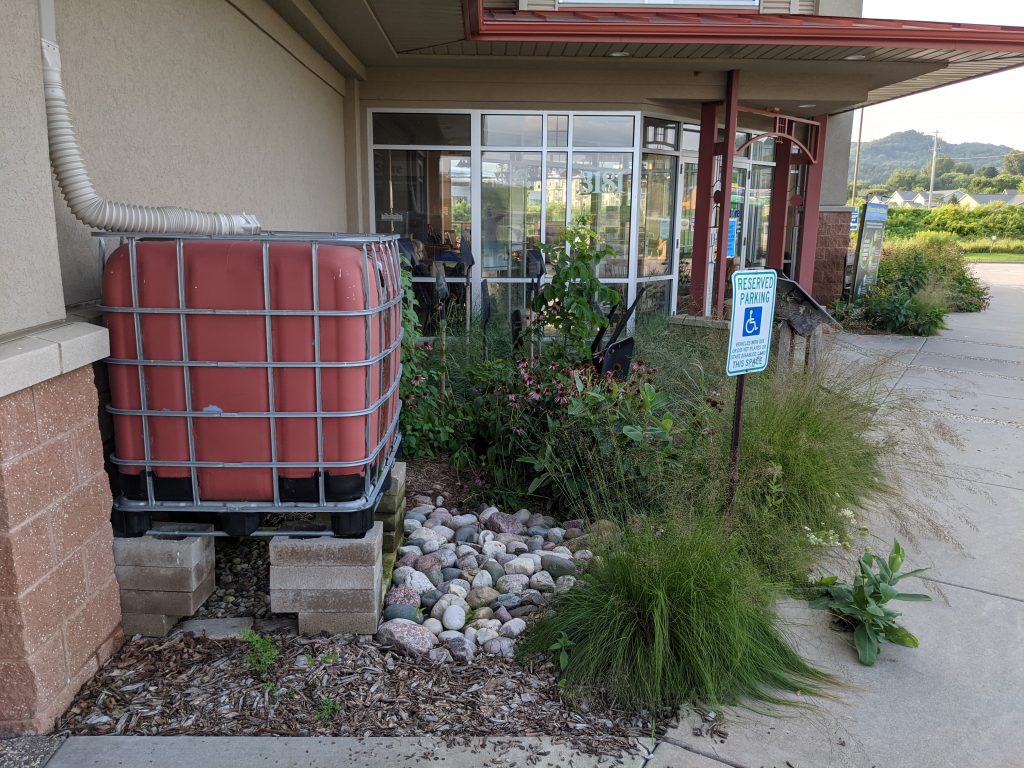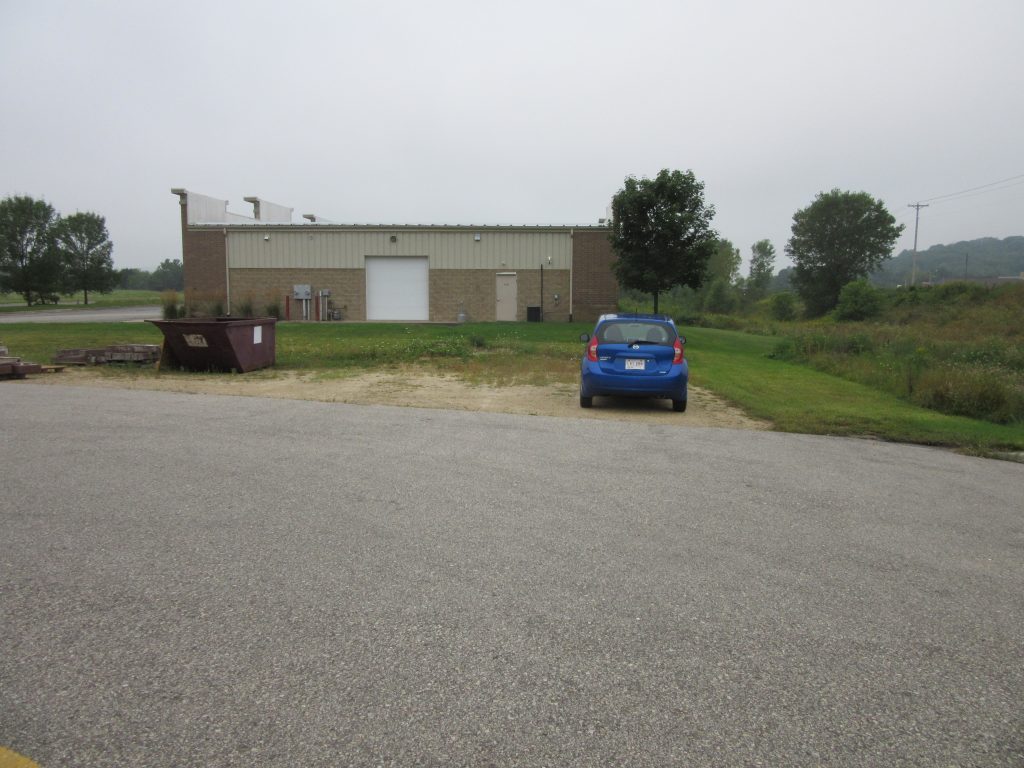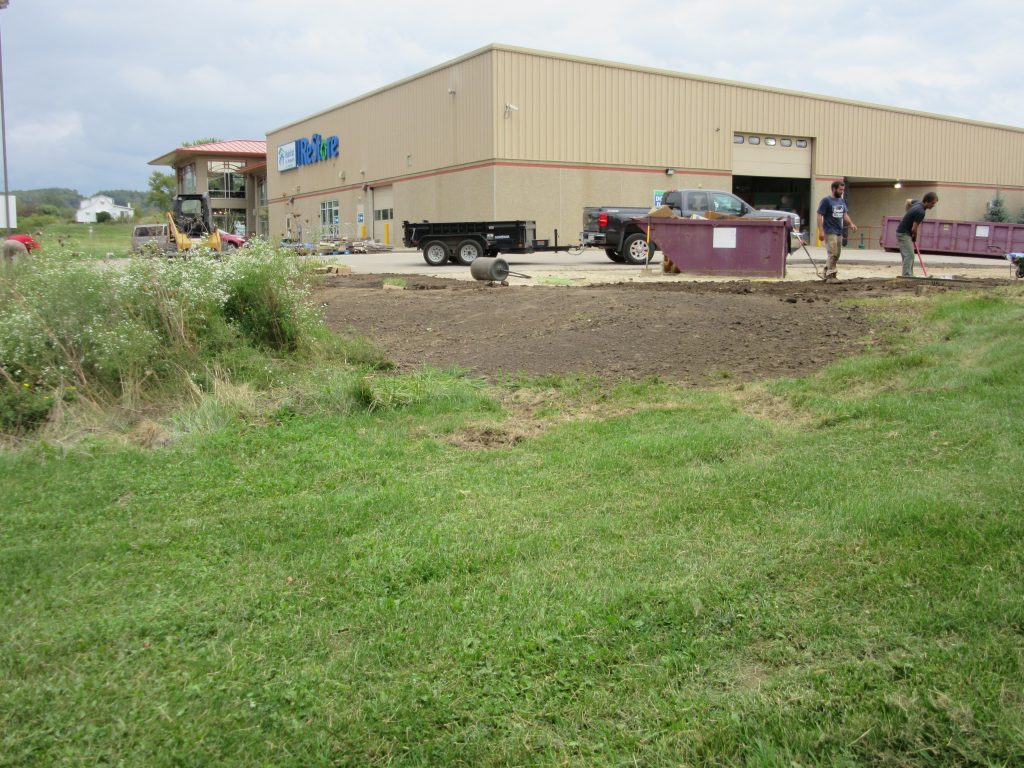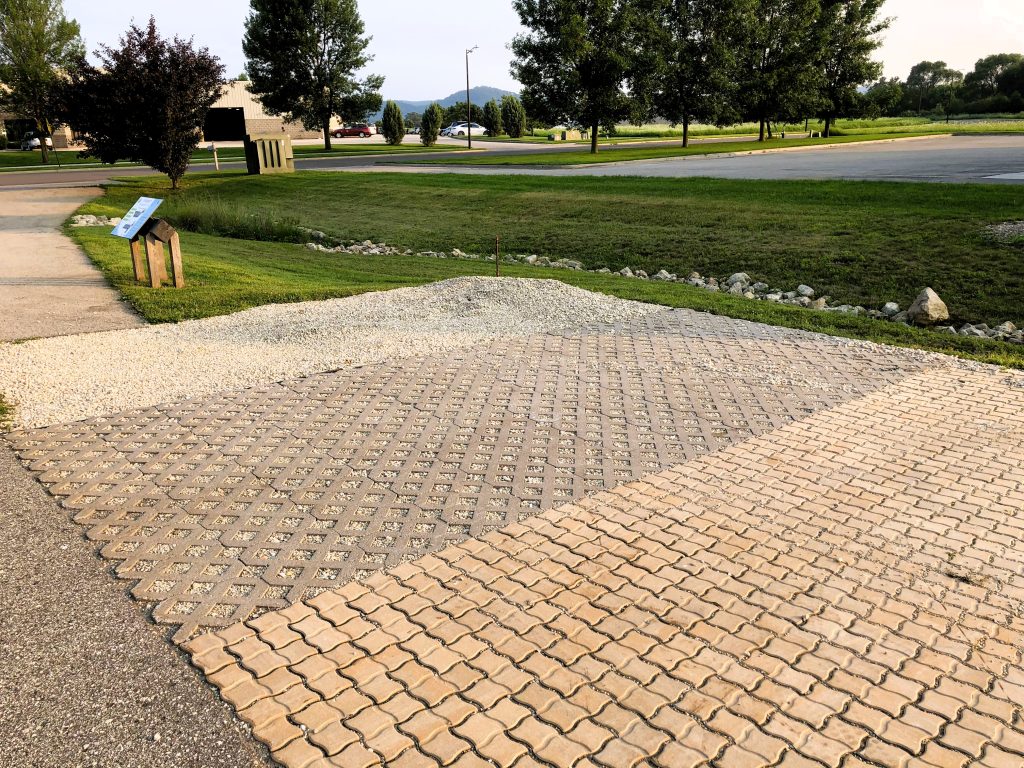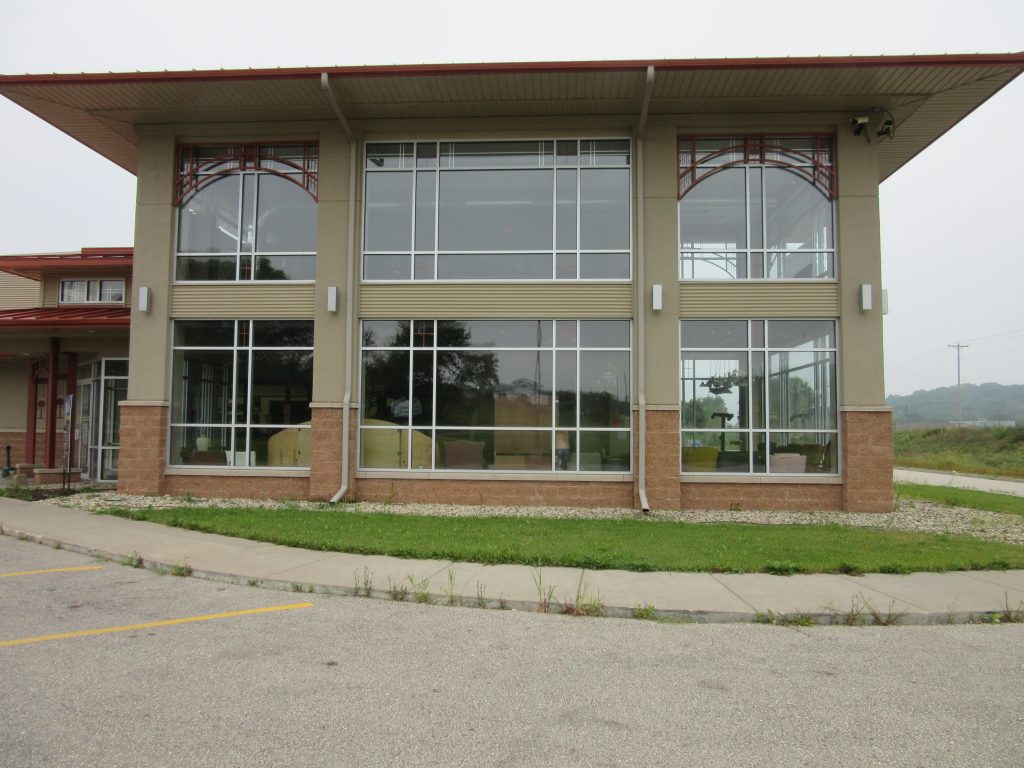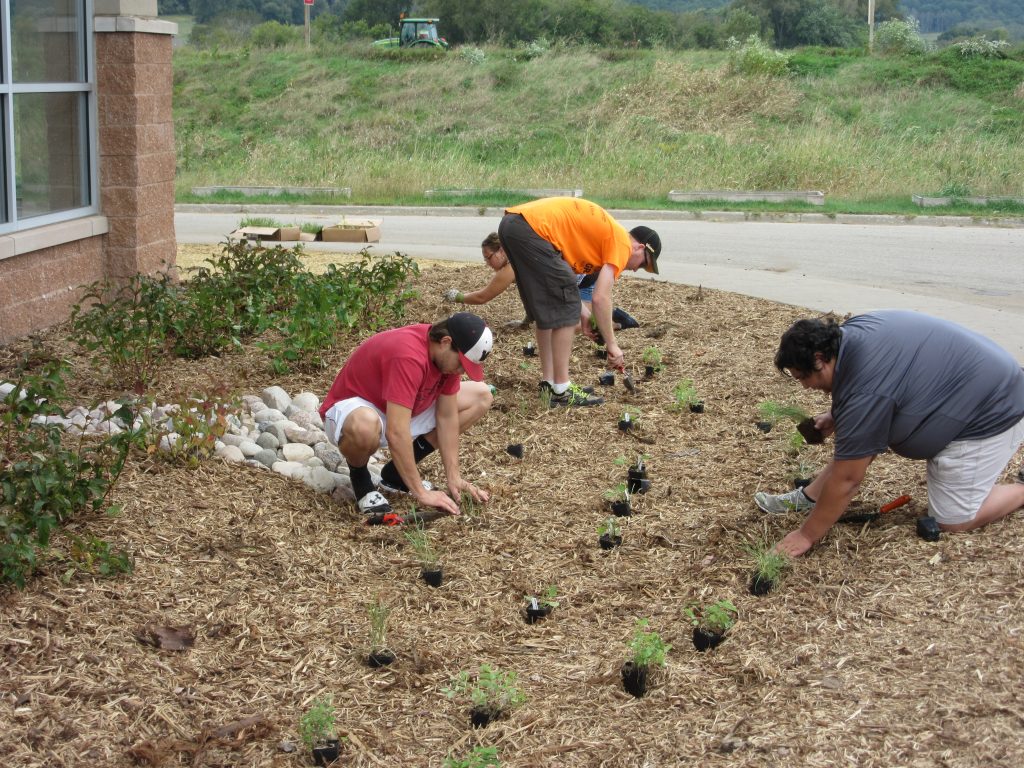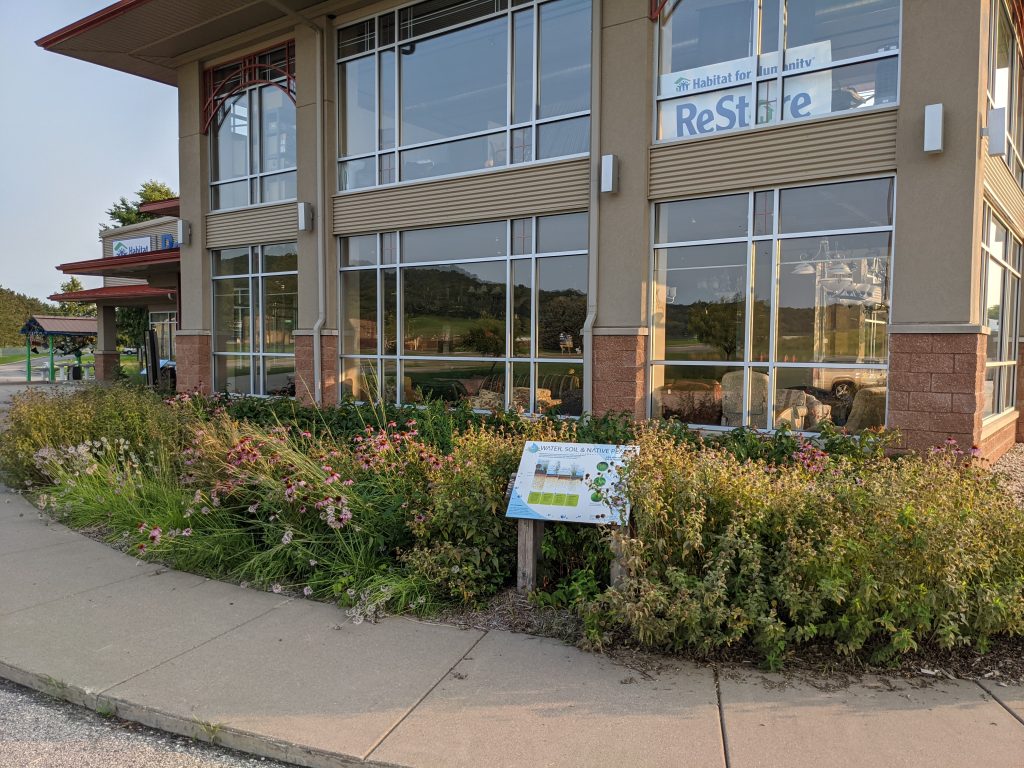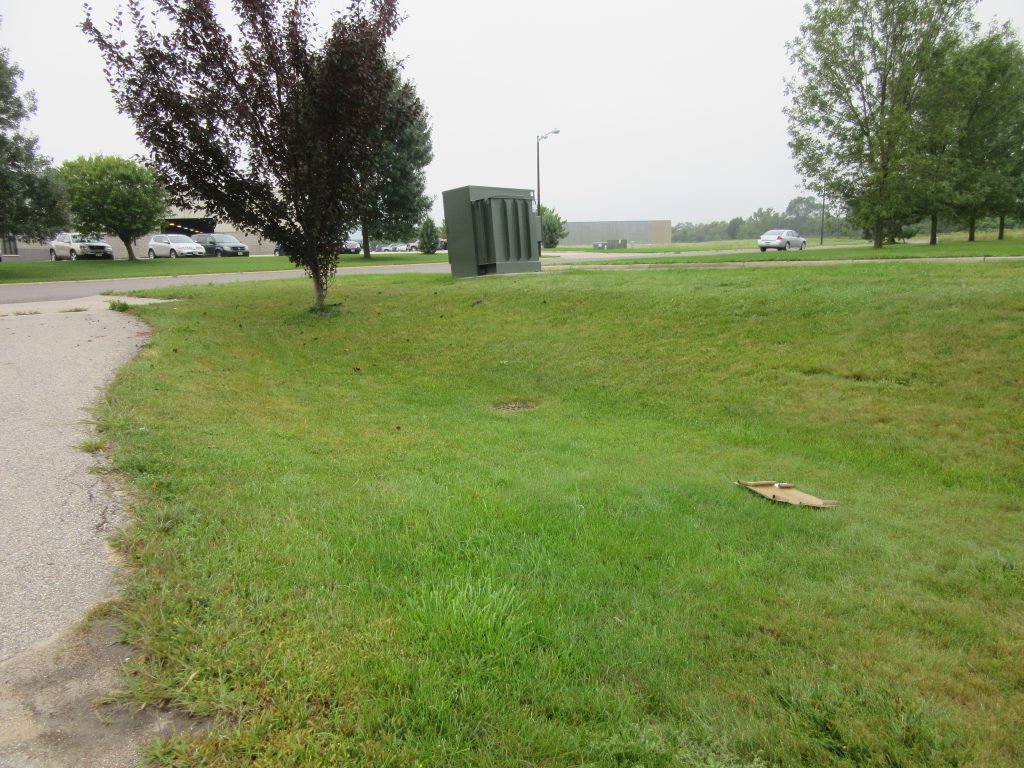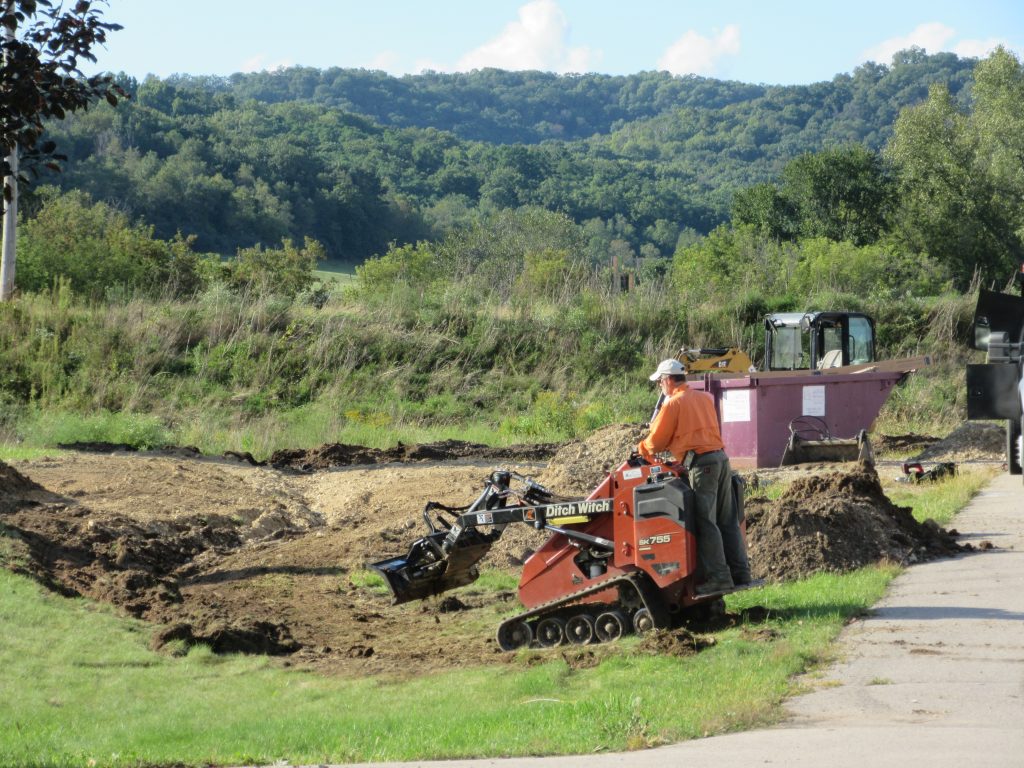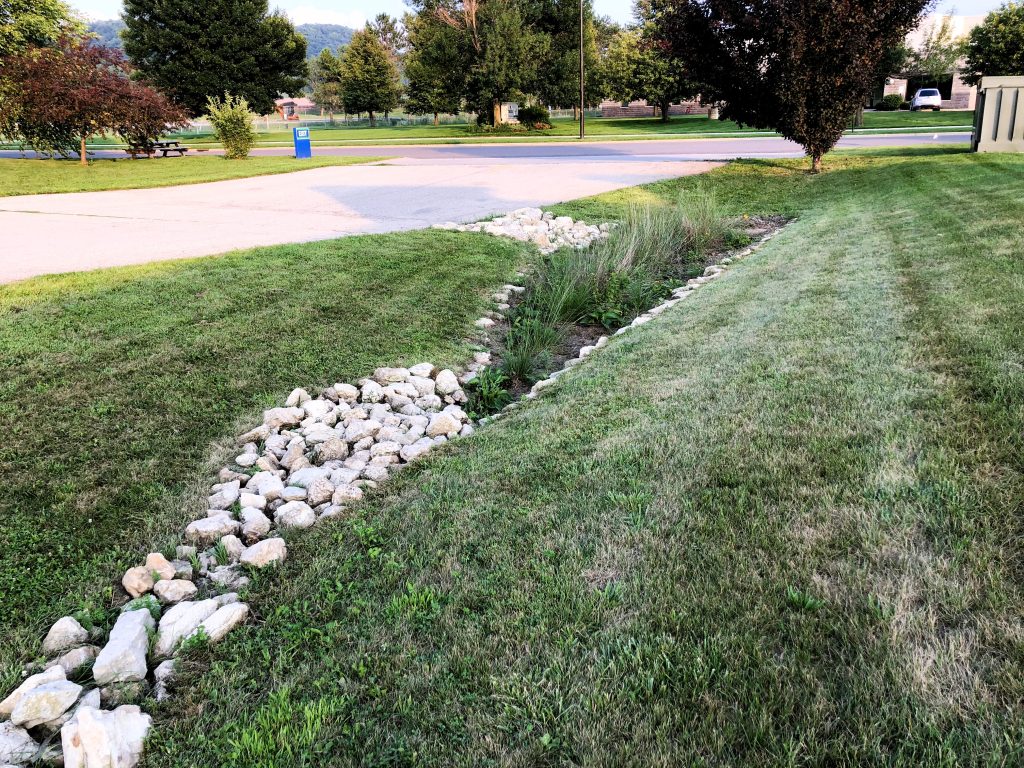
habitat restore la crosse
A Stormwater Demonstration, Education, and Outreach Project
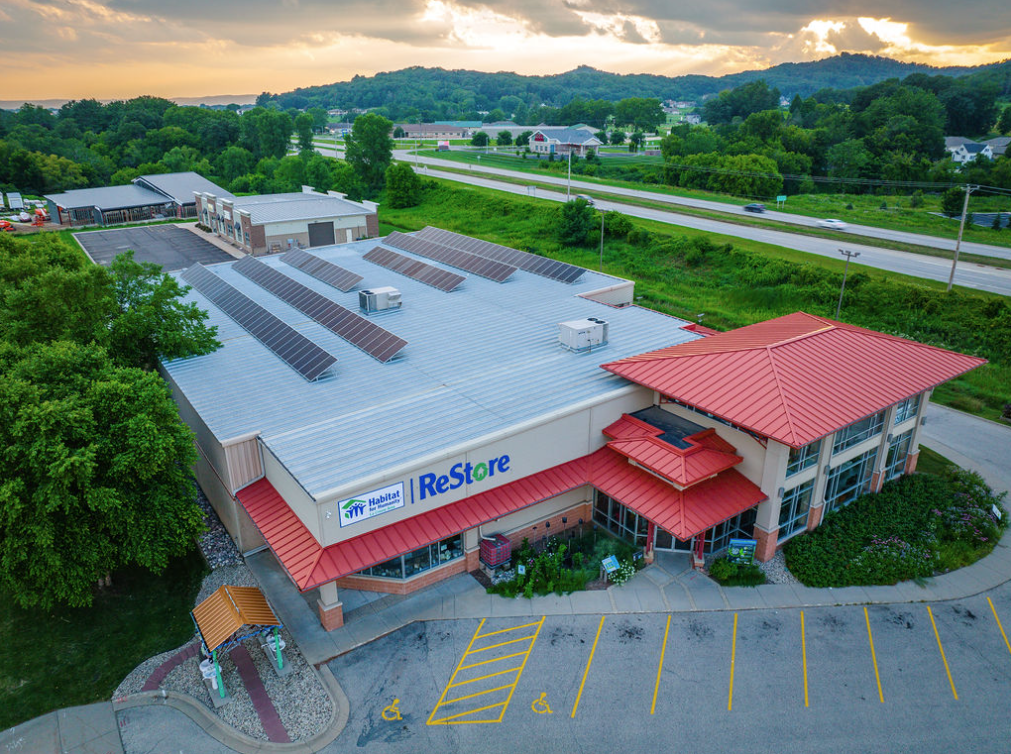
For several years, La Crosse Area Waters looked for a community partner whose property would help demonstrate stormwater management best practices. The goal was to educate and inspire from reality. To show citizens what best practices look like and educate them about how they benefit people and water quality.
When Habitat for Humanity of the Greater La Crosse Region moved from their downtown location to their current location (3181 Berlin Drive, La Crosse), the respected non-profit, and this highly visible property, presented an ideal situation for accomplishing stormwater education goals, while adding value to Habitat’s vision and goals for sustainable communities.
“When we were first approached by La Crosse Area Waters about turning our property into a stormwater learning site, it was a no brainer,” says Kahya Fox, Habitat La Crosse Executive Director. “Sustainable practices are embedded in all our programs, so we knew our property needed to follow suit.”
The goals for this project were simple.
- Demonstrate stormwater best management practices (BMPs)
- Inspire replication of practices by small businesses and homeowners
- Teach citizens how to reduce runoff from their properties to lessen persistent water issues, pollution, and stormwater utility fees.
- Show how stormwater management features can improve urban places for people
- Show how creative stormwater management can add social and financial value
Years of collective planning, by multiple project parterns, ultimately led to the creation of a new urban landscape that protects water and improves lives.
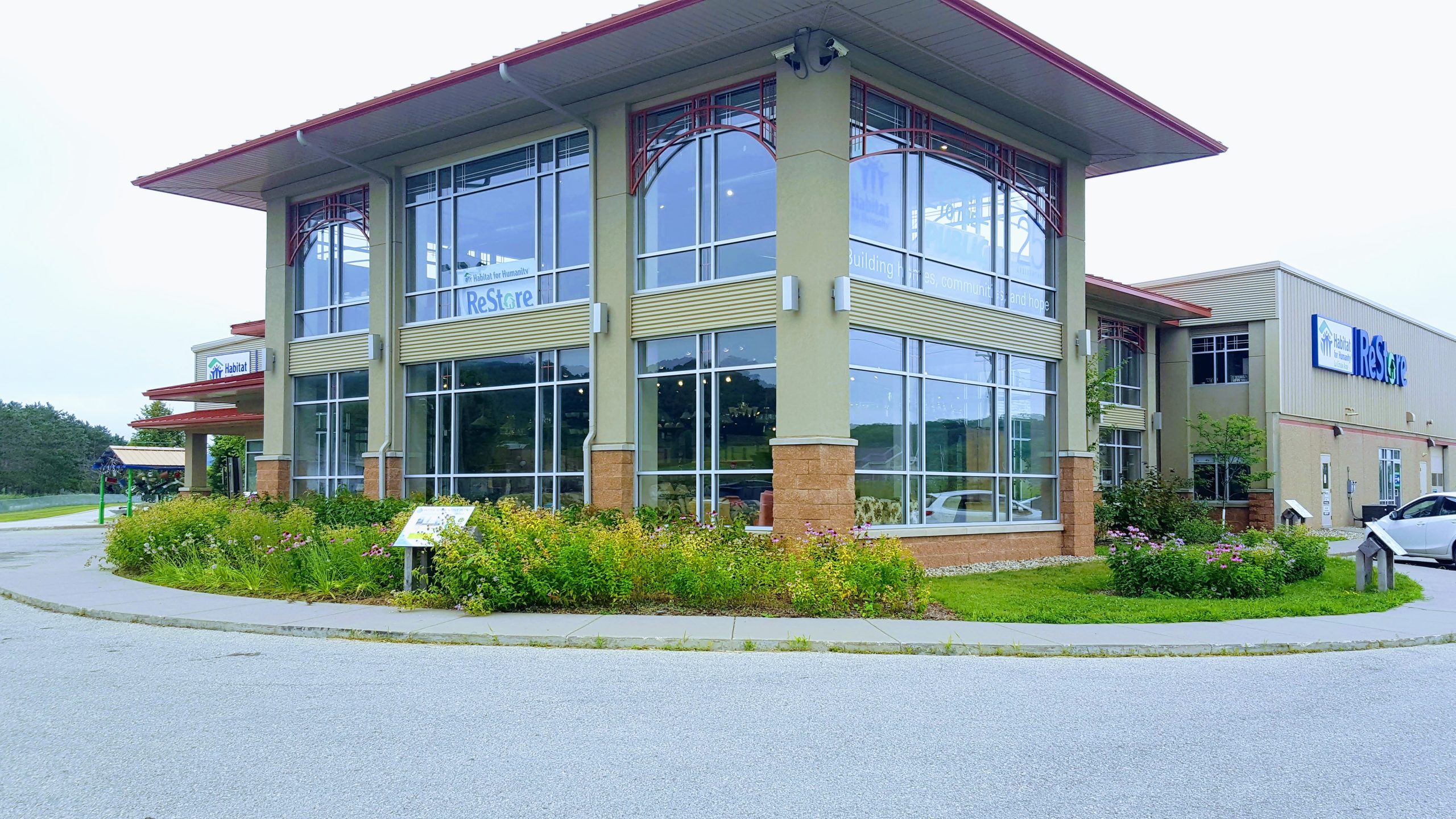
The Stormwater Learning Site implemented at the Habitat ReStore produces virtually zero runoff pollution. Native plants retain water, attract pollinators, and contribute to a healthier landscape. The rainwater collection system harvests and stores water for future usage. And interpretive signage that surrounds the ReStore educates visitors about sustainable practices and protecting waterways.
“At Habitat, we believe that caring for the environment goes hand-in-hand with building quality housing,” says Fox. “We are proud of this amazing collaboration that allows our property to produce healthy soil, clean water, and a more climate resilient community.”
Stormwater management best practices at the ReStore include; a 300-gallon rainwater collection tank, five types of pervious pavement, four bio-filter rain gardens, a naturally self-irrigating hügelkultur mound garden, more than 700 native plants, raised garden beds, and multiple food producing trees and forbs. All practices are showcased with beautiful, outdoor, educational signage surrounding the property.
Proper downspout placement and an overflow depression filled with native plants and rock beds provide an ideal location for harvesting runoff.
This previously unused space now provides five additional permeable pavement parking spots and a proper, enclosed dumpster location.
Downspouts now flow into a giant, bio-filtration rain garden filled with dozens of native species of pollinator plants.
By changing the landscape and redirecting water to flow into basins, polluted runoff is captured and absorbed rather into storm systems, and waterways.
Many local partners were involved in the success of the Habitat ReStore Stormwater Learning Site. Project collaborators include; La Crosse Area Waters, Habitat for Humanity, Paragon Associates, Coulee Region Ecoscapes, NewGround, Prairie Nursery, Trees for Today, County Materials Corporation, Mathy Construction Company, Western Technical College, Viterbo University, Invisible Structures, UW La Crosse, and individual community members.
To learn more about the sustainable efforts of Habitat for Humanity of the Greater La Crosse Region, visit their website.
Habitat In the News
People are talking about this stormwater site! Check out the following link(s) to see what all the chatter is about.
'Soak it Up' teaches home, business owners to protect against stormwater runoff.

